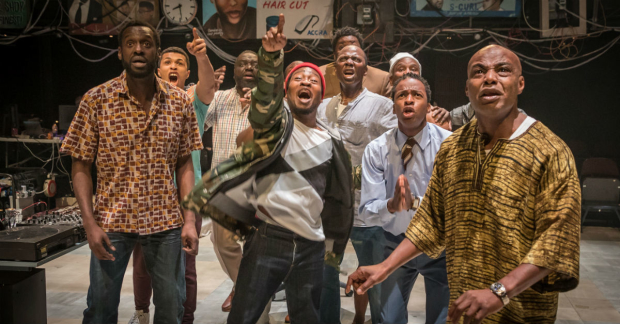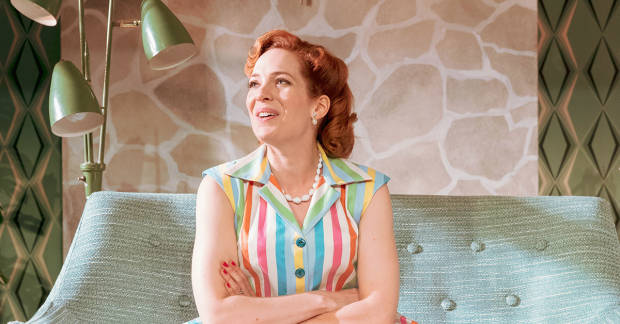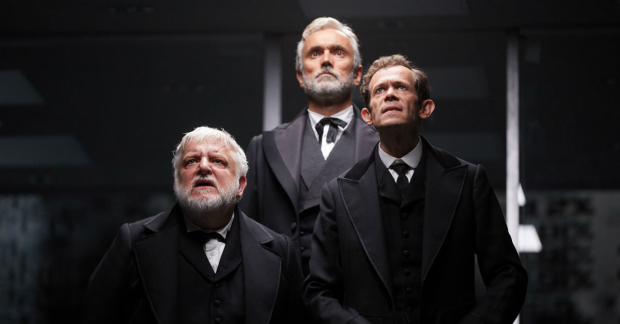Review: Her Naked Skin/Votes for Women! in Courage Everywhere (National Theatre)
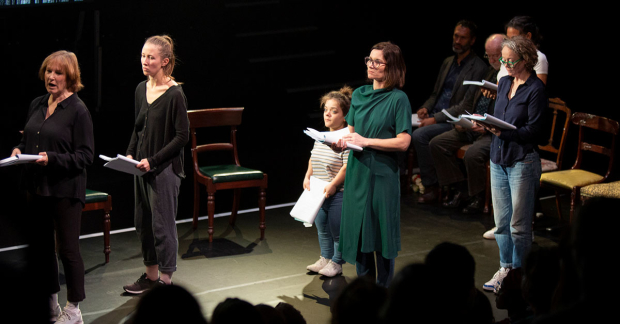
© Ellie Kurttz
To mark the 100th anniversary of (some) women getting the vote, the National Theatre has organised an enterprising programme of exhibitions, activities and rehearsed readings of plays by women and about women's suffrage and rights.
I caught two of the offerings over the weekend and both made for energising and thought-provoking pieces of theatre, that made you long to see them in full-blown productions. On Saturday, I watched Her Naked Skin, by Rebecca Lenkiewicz, which in 2008 became the first play by a living woman playwright to be staged in the Olivier auditorium.
That brought it its place in history, though some of the reviews were sniffy about its bold attempt to combine the history of the Suffragette movement with the story of a doomed love affair between the Lady Celia Cain and the working class Eve Douglas, which proves simultaneously liberating and destructive. In particular it concentrates on the treatment of the Suffragettes in Holloway Prison – where the upper class Cain is protected in a way that Douglas and the rest of the women are not.
Under Nadia Fall's direction, which brings a forced feeding to horrifyingly vivid life, Her Naked Skin emerges with remarkable power and fervour. With just a day and a half to rehearse, both Kate Fleetwood as Celia and Erin Doherty as Eve find their way deep into the heart of the protagonists, and the speed of the staging (without scenery) increases the fluency of the words.
What Lenkiewicz charts, with remarkable precision and a kind of contained anger, is the inhumane attitudes of the supposedly civilised men who sanction what amounts to torture of what they call "the lunatic fringe of lonely frigid women who crave attention". These scenes, and those in parliament and prison, are based on documentary testimony; Lenkiewicz shapes them into an indictment that in its fear of giving women power and its brutality of suppression still rings extraordinary echoes today.
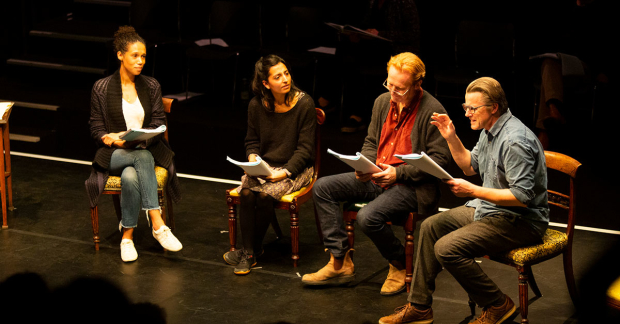
© Ellie Kurttz
In this sense, Elizabeth Robins' play Votes for Women!, which was staged by Lyndsey Turner on Sunday, is also prescient. Written in 1907, and first presented at the Royal Court (or at least the Royal Court building) it is reporting on contemporary events, describing the moment when the women's suffrage movement started to put its faith in deeds not words, after 40 years of disappointment.
Like Her Naked Skin, it reveals the contempt that men had for the agitating women; even the so called radical St John Greatorex (played with monstrous pomposity by Anthony Calf) sneers at spinsters "who smell of indian rubber" and pours scorn on political women. But the women depicted do not all stand shoulder to shoulder with their sisters, regarding the overturning of the status quo as somehow monstrous.
It is also acute on differences of class that protect such women. "You will never know how many things are hidden to a woman in good clothes," says its campaigning heroine Vida Levering (Vinette Robinson, wonderful) as she explains that the vote is needed to help women struggling in poverty, who are helpless to protect themselves against exploitation.
You can see why Robins' play has dropped out of the repertoire. It has a difficult central act that is essentially just a series of speeches, fascinating as social commentary and for their arguments, but essentially undramatic. (It was, ironically, this act that was most praised when the production originally opened.)
Nevertheless, it is remarkable for its frankness in addressing unwanted pregnancy and illegal abortion. And in its revelations about the relationship between Levering and the dynamic Tory MP Geoffrey Stonor (Zubin Varla) it touches on exactly those issues of moral hypocrisy and personal blindness that Wilde, Granville Barker and Galsworthy explored in plays that are also flawed but revived more often.
To this, this inspired weekend of events provided some kind of corrective. How brilliant it would be, though, to see some bigger revivals of the lost works of women writers and (whisper it very quietly because it would be rude to look a gift horse in the mouth) a few more works by contemporary women playwrights on the National's biggest stages. This should mark only the beginning.







